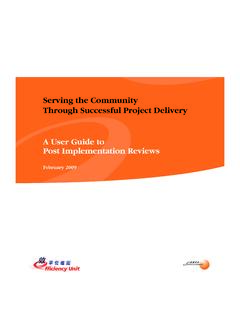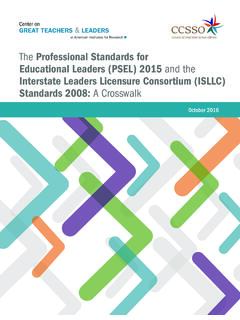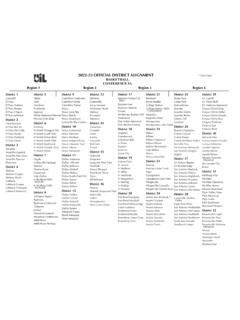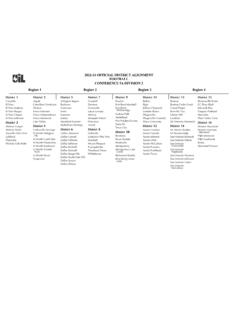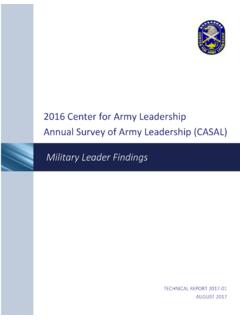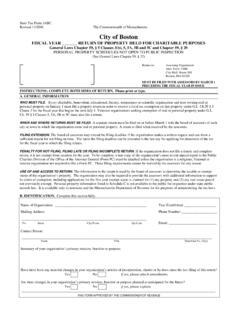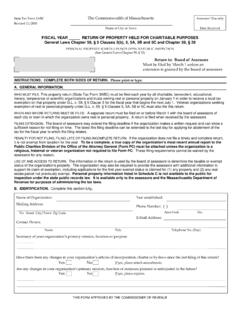Transcription of EFFICIENCY UNIT VISION & MISSION
1 EFFICIENCY unit VISION & MISSION VISION Statement To be the preferred consulting partner for all government bureaux and departments and to advance the delivery of world-class public services to the people of Hong Kong. MISSION Statement To provide strategic and implementable solutions to all our clients as they seek to deliver people-based government services. We do this by combining our extensive understanding of policies, our specialised knowledge and our broad contacts and linkages throughout the Government and the private sector. In doing this, we join our clients in contributing to the advancement of the community while also providing a fulfilling career for all members of our team. A Guide to Complaints Handling and Public Enquiries 1 FOREWORD Handling complaints well is a mark of good government. Doing so depends not just on well trained frontline staff but on the commitment, understanding and attention of the heads of bureaux and departments and all levels in between.
2 Good complaints handling does not mean acceding to every request, but it does demand listening, understanding, explaining and helping wherever possible. We must address all complaints in a fair and professional manner, and communicate the outcomes honestly and expeditiously. This guide is a first attempt to provide comprehensive advice to all departments about complaints and public enquiries handling. I trust that it will evolve as experience is shared between staff and as we learn from the public that we serve. It is unrealistic to think we can avoid complaints. Rather, we should welcome complaints, rectify what can be rectified, and learn how to explain our policies, objectives and services better. Henry Tang Chief Secretary for Administration 2 A Guide to Complaints Handling and Public Enquiries CONTENTS 4 KEY POINTS 5 INTRODUCTION 8 CHAPTER 1: AN EFFECTIVE COMPLAINTS HANDLING SYSTEM 1a) Guiding principles 1b) Essential features of a good complaints handling system 1c) Building an effective complaints handling system 15 CHAPTER 2: HANDLING THE INITIAL CONTACT GOLDEN RULES FOR HANDLING THE INITIAL CONTACT 2a) Dealing with the initial contact 2b) Helping the complainant understand the process 2c) Recording the complaint 2d) Electronic recording of complaints 2e) Dealing with difficult complainants 24 CHAPTER 3.
3 INVESTIGATING A COMPLAINT GOLDEN RULES FOR INVESTIGATING A COMPLAINT 3a) Identifying the complaints handling party 3b) Handling misdirected complaints 3c) Planning and implementing an investigation 3d) Dealing with cross-departmental complaints 3e) Escalating complaints 3f) Involvement by The Ombudsman 29 CHAPTER 4: PROVIDING A GOOD QUALITY RESPONSE GOLDEN RULES FOR PROVIDING A GOOD QUALITY RESPONSE 4a) Demonstrating understanding of the reason for complaint 4b) Demonstrating the complaint has been thoroughly investigated 4c) Explaining the outcome of the investigation 4d) Replies to emails 32 CHAPTER 5: HANDLING REPEATED COMPLAINTS GOLDEN RULES FOR HANDLING REPEATED COMPLAINTS 5a) Identifying the causes of repeated complaints 5b) Giving complainants the opportunity to ask for a review/appeal 5c) Dealing with persistent complaints 36 CHAPTER 6: LEARNING FROM COMPLAINTS GOLDEN RULES FOR LEARNING FROM COMPLAINTS 6a) Recording complaints data 6b) Analysing complaints data 6c) Briefing senior management fully and regularly on complaints received 6d) Considering the need for service delivery/policy changes 6e) Documenting and communicating lessons learnt 6f) Obtaining feedback from complainants on complaints handling 6g) Monitoring and controlling the complaints handling process 6h) Avoiding unnecessary complaints 43 CHAPTER 7.
4 HANDLING PUBLIC ENQUIRIES 7a) Objectives 7b) Handling the initial contact well 7c) Adopting integrated, multiple channels 7d) Be alert to value for money 7e) Minimising unnecessary enquiries 47 ANNEX TEMPLATE TO PUBLICISE COMPLAINTS HANDLING MECHANISMS A Guide to Complaints Handling and Public Enquiries 3 KEY POINTS If you read nothing else, read this page: A complaint is an opportunity to improve and a lesson for reference. Complaints handling is fact finding to establish the truth, being fair to all complainants and staff. Senior management commitment is essential to guide and support frontline staff. Staff handling complaints should view matters from the complainant s perspective, without being defensive. When a complaint crosses departmental lines of responsibility, we should solve the problem first and sort out the bureaucracy later.
5 There are many different departments but all are the one government. Value for money and effectiveness should always be kept in mind. The maintenance of accurate and retrievable records is fundamental to analysis and lesson learning. Departments remain accountable even for outsourced services. Positive complaints management is an integral part of quality service and good governance. KEY QUOTE This guide includes not only good practices for handling complaints but also principles for good government, steering staff towards positive service culture. It is quite a comprehensive document. Helen Yu, Deputy Ombudsman 4 A Guide to Complaints Handling and Public Enquiries INTRODUCTION An effective complaints handling system is fundamental to delivering quality public services.
6 In his 2008-09 Policy Address, the Chief Executive made a strong commitment to improving the Government s complaints handling mechanism. Heads of Departments were requested to review their existing systems and to implement measures to improve their complaints handling. This guide is intended to assist staff at all levels of government as they work to deliver these improvements. While we have kept on improving the quality of public services, there have been occasions when we might not have met people s expectations. We must remain humble at all times and be open to suggestions for improvement. To ensure that public services move with the times and respond quickly to citizens needs, I have asked Heads of Departments to review the implementation of their performance pledges and to improve their complaint handling mechanisms in the coming year. The Chief Executive s Policy Address 2008-09 (paragraph 120) The importance of effective complaints handling Citizens have become increasingly aware of their rights and the responsibilities of departments.
7 They now expect all departments to address their concerns promptly and effectively. In the 2008 Accenture Citizen Experience Study1, those surveyed in Hong Kong believed that taking prompt and effective action to resolve problems or difficulties that citizens experience with public services was one of the most important attributes of effective government. However, only 16% of the respondents were satisfied with the Government s performance in this area. Similarly, in the 2008 Opinion Survey A Guide to Complaints Handling and Public Enquiries 5 on Public Service Delivery2, citizens gave the lowest average rating ( out of 10) to the statement that Government responds quickly when receiving public enquiries, complaints and applications . They awarded the private sector a higher score ( out of 10). Effective complaints handling is crucial to delivering quality public service to the community.
8 The EFFICIENCY unit s Public Sector Reform Report on Complaints Handling3 describes good complaints handling as about seeking continuous improvement, using feedback and lessons learnt to improve service design and delivery . Effective complaints handling not only translates into enhanced service to the public and greater EFFICIENCY , but also leads to improved staff morale and enhanced departmental reputation. In addition, if the public have confidence that the Administration s complaints handling system is effective, they will be encouraged to contact the Government to seek practical resolutions to their issues and concerns, rather than simply contacting third parties to vent their frustration. In brief, it promotes people s confidence and trust in Government services. 1 This study was conducted by the Accenture Institute for Public Service Value in June to August 2008 to measure citizens perceptions of government in 13 jurisdictions ( citizenexperience/hongkong).
9 2 This survey was conducted in October 2008 by the Center for Communication Research of the Chinese University of Hong Kong. 3 This report was issued in January 2009 to highlight some of the guidelines and up-to-date best practices in complaints handling being followed around the world ( pub_bp/ ). INTRODUCTION Although extra effort may be required initially to improve the quality of complaints handling, it may result in reduction of a department s workload in the long run. By reviewing the complaints received, a department can identify common and systemic improvement areas and reduce the frequency of similar complaints in the future.
10 Of course, it may be that improvement in the complaints handling regime increase the public s confidence and trust in the system, which may generate more complaints being made in the short term. This should still be seen as a good thing. Handling public enquiries well is equally important There are many obvious similarities and synergies between departments complaints handling and public enquiry regimes. Indeed, the same frontline staff often deal with both topics. Departments are encouraged to consider both topics when examining improvement opportunities. The purpose of this guide This guide offers practical advice to staff at every level of the Government on how to handle complaints and enquiries effectively and provide quality services to the public. For the general procedures, departments should always follow the relevant circulars, including General Circular No.
